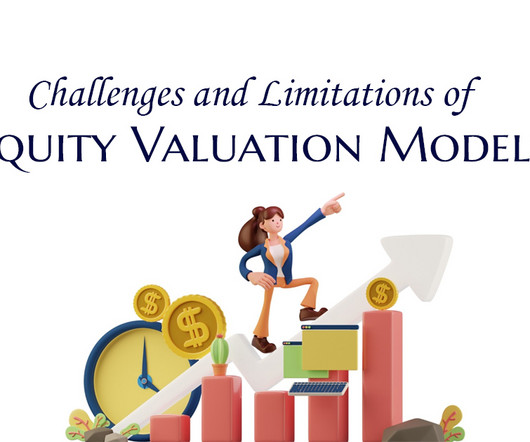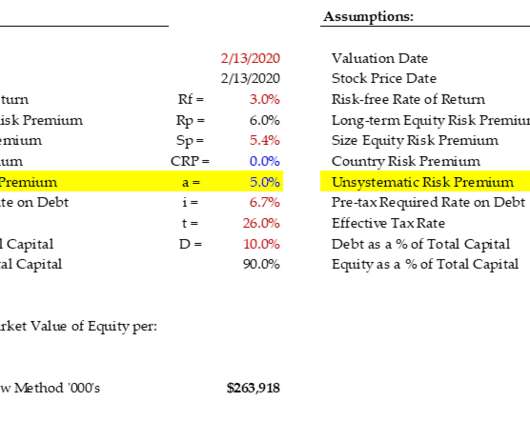How to Value a Small Business
Equilest
MARCH 16, 2024
Different Approaches to Valuing a Small Business Asset-Based Valuation This approach calculates the value of a business by summing up its tangible assets, such as inventory, equipment, and real estate, minus liabilities. FAQs on Small Business Valuation What is the most common method used to value a small business?

















Let's personalize your content